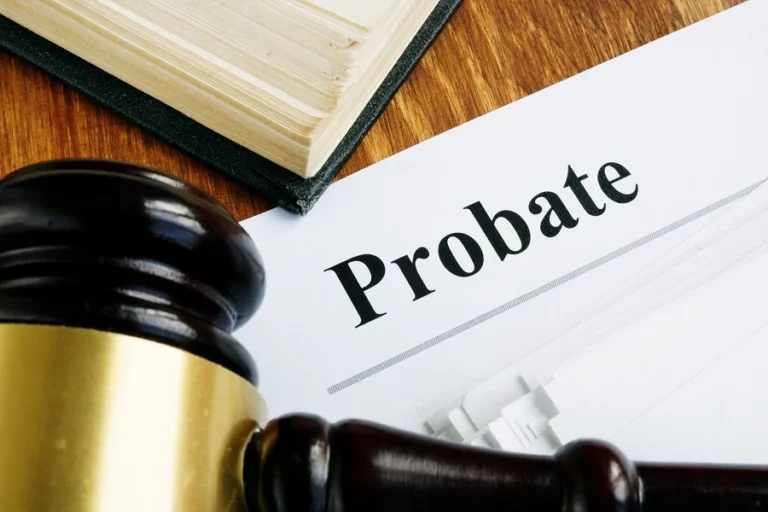Understanding probate law in Montana is essential for anyone dealing with the estate of a deceased loved one. The probate process involves several key procedures and can bring about various issues that need careful handling. This guide provides practical advice for navigating probate, emphasizing the importance of knowing your legal rights and responsibilities.
What is Probate?
Probate is the legal process through which a deceased person’s estate is administered and distributed. It involves validating the will, paying debts and taxes, and distributing the remaining assets to beneficiaries. HagEstad Law Group offers expert legal support to guide families through the intricacies of the probate process in Montana.
Key Procedures in the Probate Process
Several essential procedures must be followed during the probate process in Montana:
Filing a Petition
The probate process begins with filing a petition in the probate court of the county where the deceased resided. This petition includes details about the deceased, the estate, and the proposed executor.
Validating the Will
The court must validate the will to ensure it meets legal standards. This process might involve:
- Witness Testimony: Witnesses who signed the will may need to testify about its authenticity.
- Holographic Wills: Additional steps may be required for handwritten wills to confirm their validity.
Appointing an Executor
Once the will is validated, the court appoints an executor to manage the estate. The executor’s duties include:
- Inventorying Assets: Compiling a list of all estate assets.
- Appraising Assets: Determining the value of the estate’s assets.
- Managing Assets: Overseeing the estate’s assets during probate.
Notifying Creditors and Beneficiaries
The executor must notify all creditors and beneficiaries of the probate proceedings. This involves:
- Publishing Notices: Publishing a notice in a local newspaper to inform potential creditors.
- Direct Notifications: Sending direct notifications to known creditors and beneficiaries.
Paying Debts and Taxes
The executor is responsible for paying the deceased’s debts and taxes from the estate’s assets. This includes:
- Settling Debts: Paying off any outstanding debts.
- Filing Tax Returns: Filing the deceased’s final tax return and paying any owed taxes.
Distributing Assets
After debts and taxes are paid, the remaining assets are distributed to the beneficiaries as outlined in the will. This involves:
- Transferring Titles: Transferring ownership of assets, such as real estate and vehicles.
- Distributing Cash: Distributing any remaining liquid assets to the beneficiaries.
Common Issues During Probate
Several issues can arise during the probate process, requiring careful handling and legal expertise:
Disputes Over the Will
Disputes can occur if beneficiaries or potential heirs believe the will is invalid or unfair. Common grounds for contesting a will include:
- Undue Influence: Claims that the deceased was influenced by someone to alter the will.
- Fraud: Allegations that the will was forged or fraudulent.
- Lack of Capacity: Claims that the deceased lacked the mental capacity to create or alter the will.
Executor Misconduct
The executor has a fiduciary duty to act in the best interests of the beneficiaries. Issues of misconduct may include:
- Mismanagement of Assets: Improper handling or misappropriation of estate assets.
- Failure to Follow the Will: Not adhering to the terms of the will.
- Lack of Communication: Failing to keep beneficiaries informed about the probate process.
Delays in Probate
Probate can be delayed for various reasons, including:
- Incomplete Documentation: Missing or incorrect documents can slow down the process.
- Complex Estates: Estates with numerous or complex assets can take longer to probate.
- Disputes: Legal disputes over the will or estate can cause significant delays.
Navigating the Probate Process
Navigating the probate process requires understanding the legal framework and practical steps to manage the estate effectively:
Legal Rights and Responsibilities
Knowing your legal rights and responsibilities is crucial for executors and beneficiaries. Executors must act in the best interest of the estate and beneficiaries, adhering to legal standards and the terms of the will.
Practical Steps for Executors
Executors should follow these practical steps to manage the probate process effectively:
- Organize Documents: Gather all necessary documents, including the will, death certificate, and financial records.
- Communicate Regularly: Keep beneficiaries informed about the progress of the probate process.
- Seek Professional Assistance: Engage legal and financial professionals to ensure compliance with legal requirements and proper management of the estate.
Beneficiary Considerations
Beneficiaries should stay informed about the probate process and understand their rights. They can:
- Request Information: Ask the executor for updates and information about the estate.
- Review the Will: Ensure they understand the terms of the will and their entitlements.
- Seek Legal Advice: Consult a probate attorney if they have concerns about the executor’s actions or the distribution of the estate.
Role of Attorneys in the Probate Process
Probate attorneys play a vital role in guiding executors and beneficiaries through the process. visit website provides expert legal support for probate matters in Montana.
Legal Guidance and Support
Attorneys offer valuable services, including:
- Explaining Probate Procedures: Clarifying the steps and legal requirements involved in probate.
- Filing Necessary Documents: Assisting with the preparation and filing of probate documents.
- Representing Clients: Representing executors or beneficiaries in court if necessary.
Handling Disputes
Probate attorneys help resolve disputes that arise during the probate process by:
- Mediating Conflicts: Acting as mediators to resolve conflicts amicably.
- Litigating Disputes: Representing clients in probate litigation if disputes cannot be resolved through mediation.
Managing Complex Estates
Attorneys help manage complex estates involving businesses, investments, or properties in multiple jurisdictions by:
- Valuing and Managing Assets: Assisting with the appraisal and management of complex assets.
- Ensuring Compliance: Ensuring all legal and tax requirements are met for complex estates.
Understanding probate law in Montana and the role of legal assistance is essential for managing and distributing estates effectively. By following the required steps and engaging experienced attorneys, families can navigate the complexities of probate with confidence.

